
27 Jul, 2018
Sri Lanka’s Jetwing group hosts world’s first communications course linking travel & tourism to UN SDGs
Colombo — On July 17-18, twenty young executives from the hotel and travel divisions of Sri Lanka’s prominent Jetwing group attended what is claimed to be the first global training course on improving the communications linkages between travel & tourism and the UN Sustainable Development Goals.
With the support of Jetwings Hotels Chairman Hiran Cooray and his son Dmitri, the company’s Director of Operations, I am proud to be the first to have conducted this unique 12-hour course.
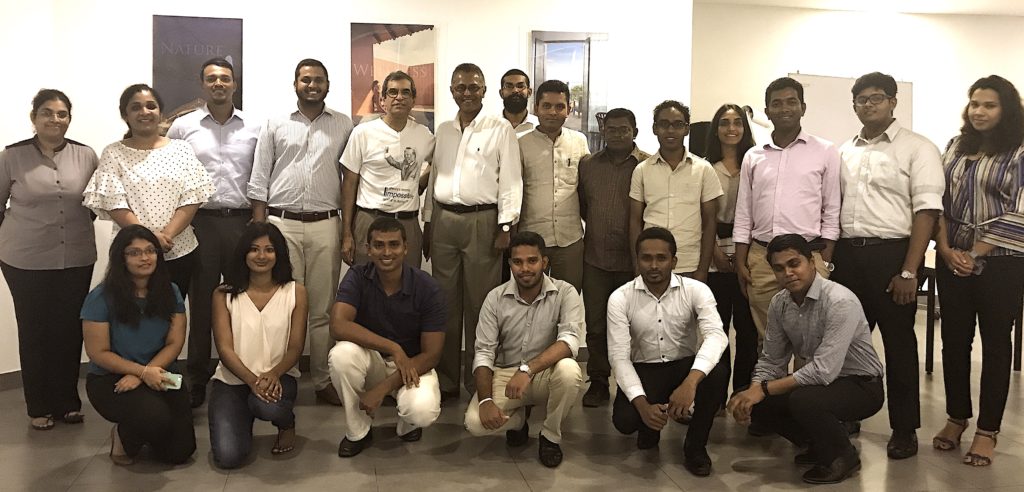
The course participants pictured with Hiran Cooray (sixth from left back row). To his immediate right are Imtiaz Muqbil and Dmitri Cooray.
The reactions from some of the participants speak for themselves.
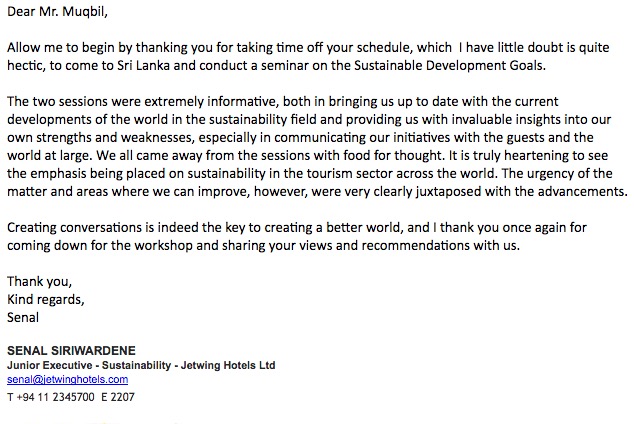
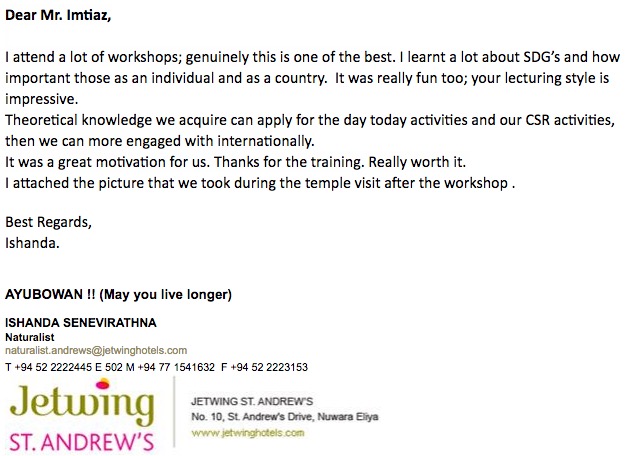
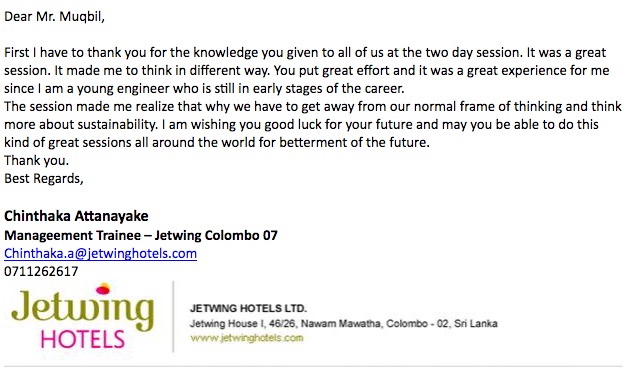
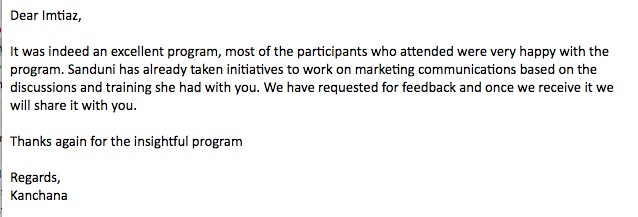
Two course participants presented me with copies of their books, with hand-written notes.
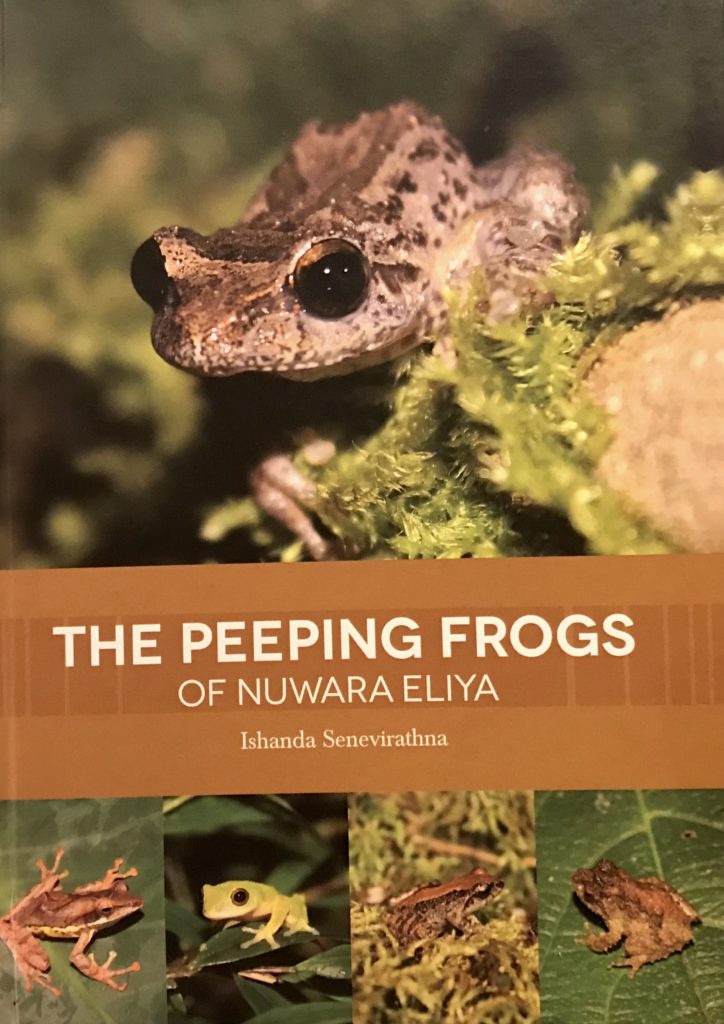 |
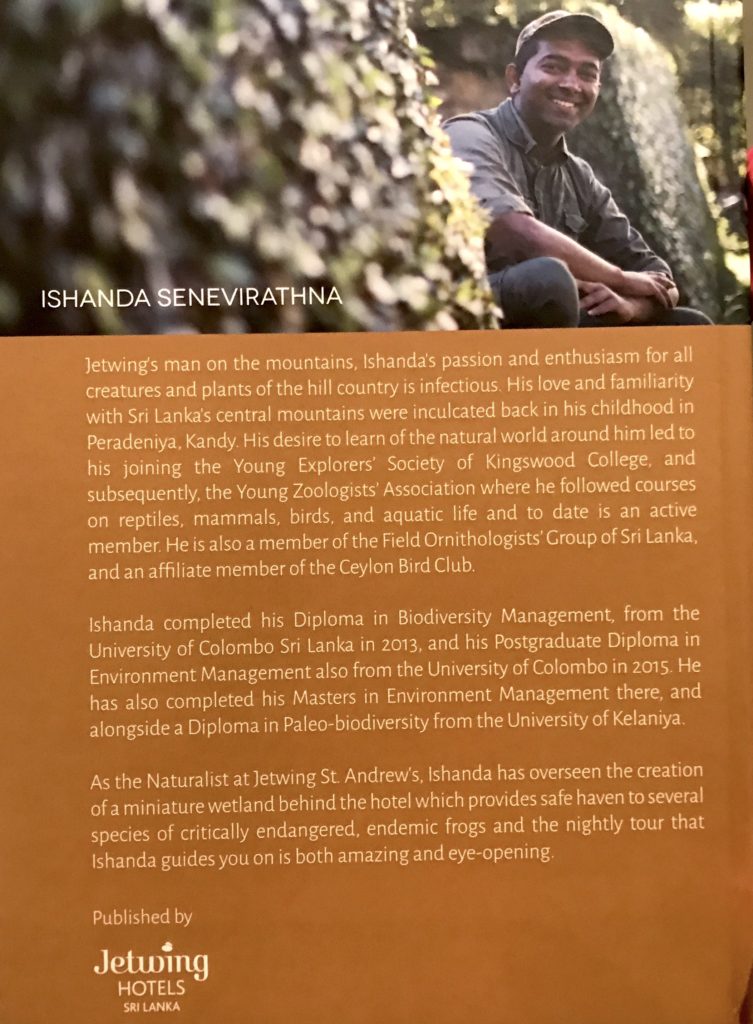 |
 |
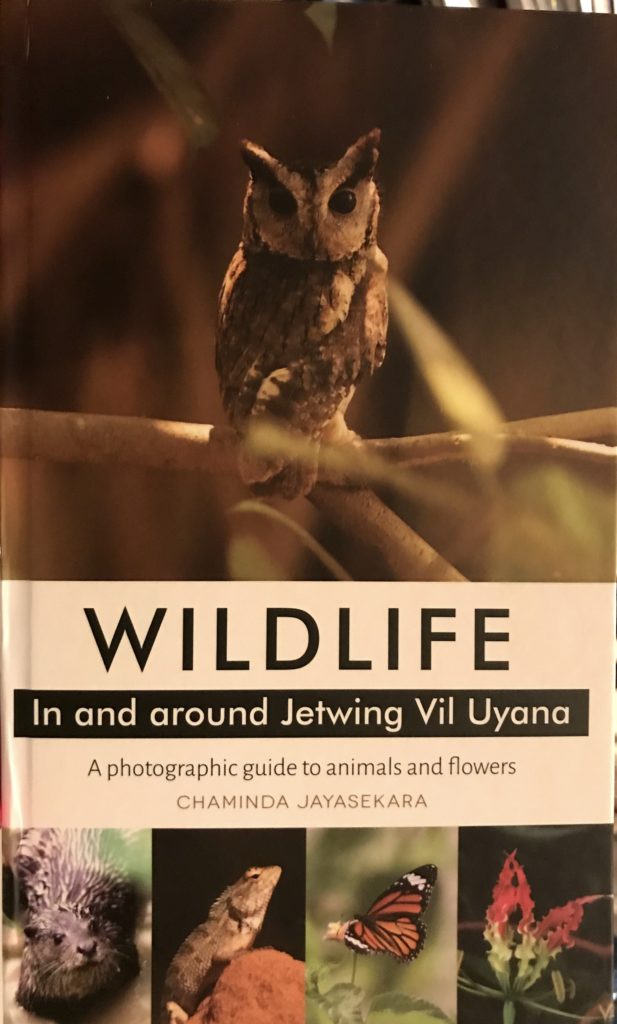 |
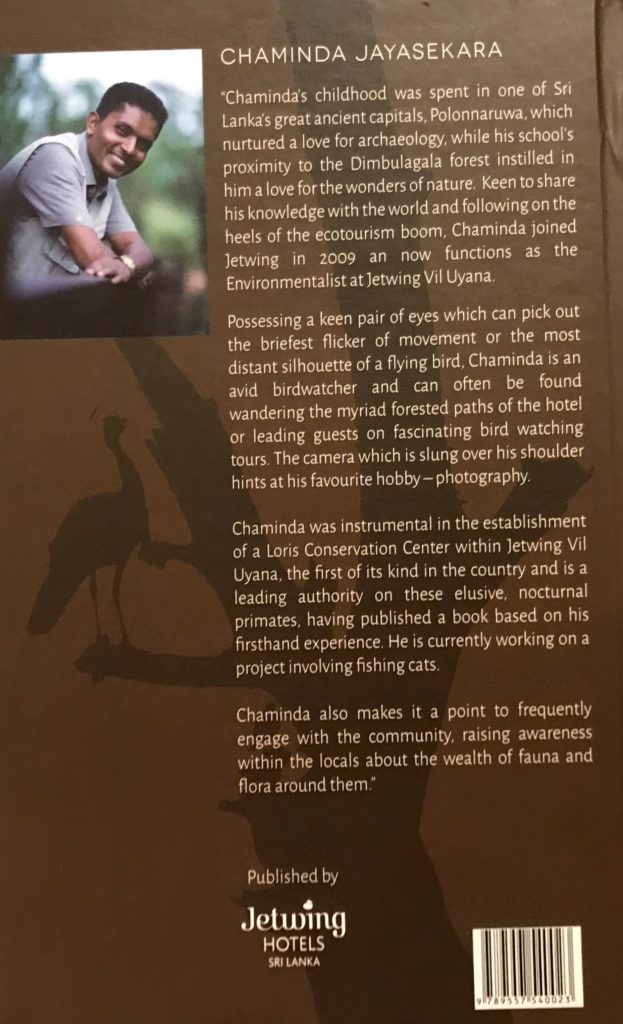 |
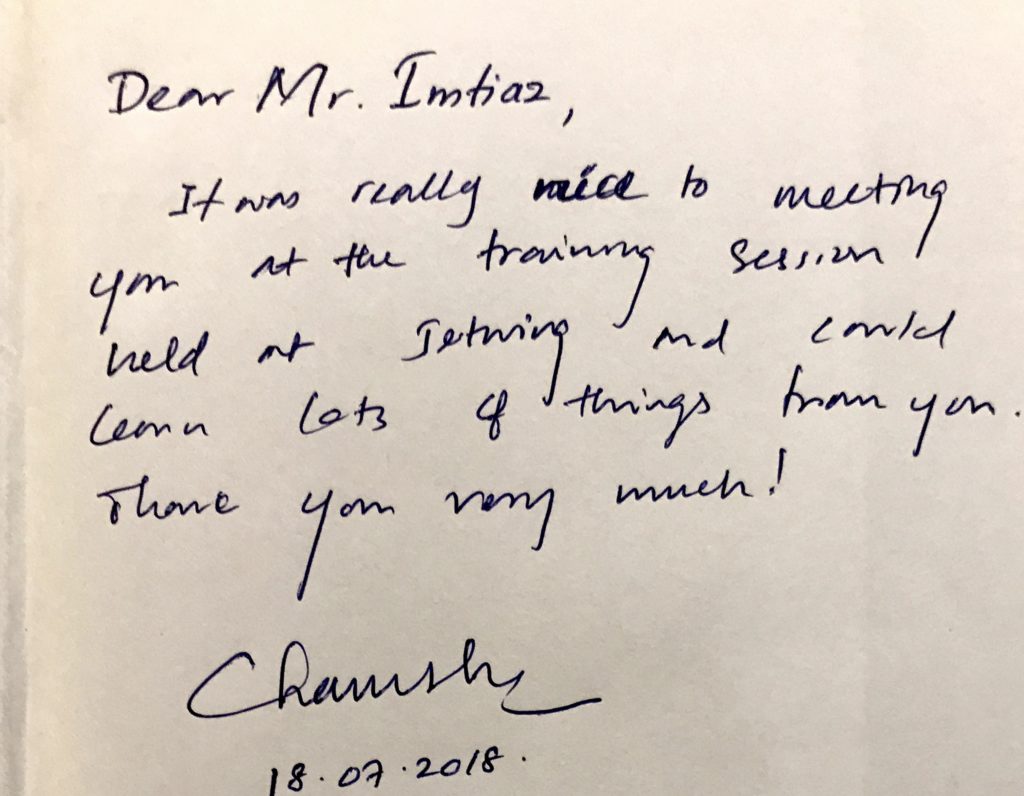 |
The course participants were all young millennials in their 20s and 30s — engineers, naturalists, marketing communications and e-commerce professionals. Most had studied in Sri Lanka but a few had degrees from universities in the UK and Australia.
I began by asking them what they value most in life. Several said freedom, others said family, health and education. All are exactly in line with the SDGs. That set the stage for a comprehensive workshop of ways to link their personal, professional, corporate and national and global objectives, and upgrade communications with stakeholders.
Although both Jetwing Hotels and its sister company Jetwing Travel are way ahead of their time in attention to environmental sustainability, the course was designed to go well beyond and cover the global economic, social, cultural and geopolitical environment, also known as the “operating environment” in which travel & tourism thrives.
In my introduction, I affirmed that Sri Lanka had a unique opportunity to exploit its last-mover advantage and play a leading role in forging the Asian Century by learning from its own recent history of ethno-religious conflicts and natural disasters.
The course was dedicated to the memory of Jetwing group’s patriarch and founder, the late Herbert Cooray. He began as a university activist and socialist ideologue who later discovered his business acumen. In pursuing capitalistic profits, he never lost sight of the fact that his success was entirely dependent on the health and welfare of both his people and the planet.
I had asked all participants in advance to read his biography, A Man In His Time, impeccably chronicled by his daughter Shiromal, sister of Hiran. The course included a robust interactive discussion on how Herbert Cooray’s business principles could be aligned with both the personal values of the participants and the SDGs.
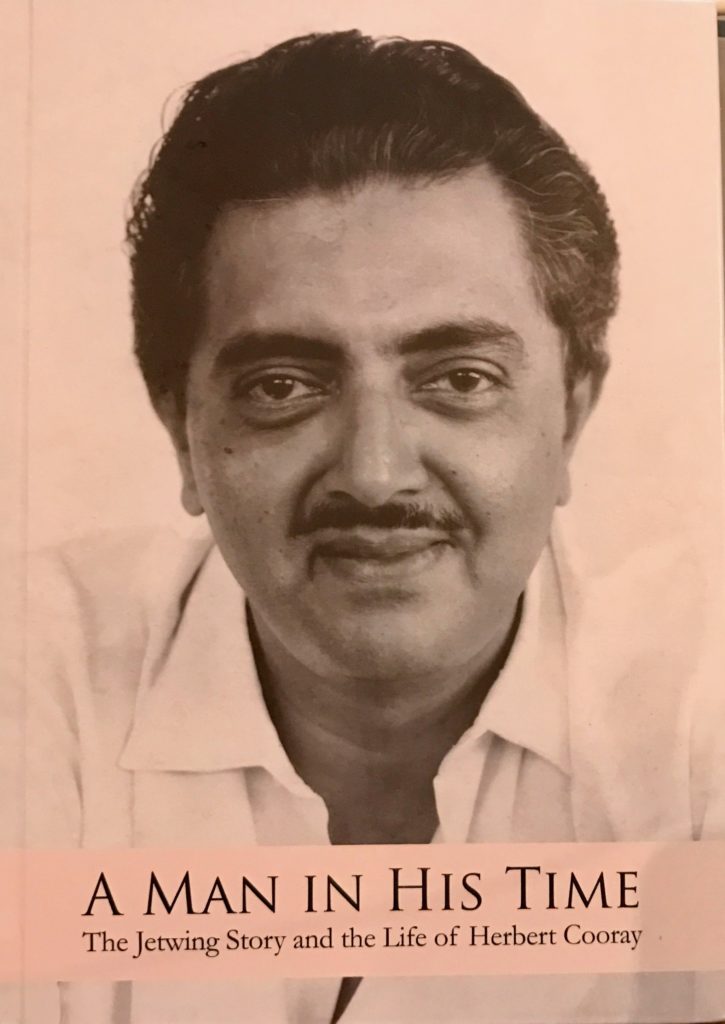
By sheer coincidence, the timing of the course proved to be extremely fortuitous. It was held on the same day as the 100th anniversary birthday of Nelson Mandela and exactly on top of the high-level political forum that was convening at the UN headquarters to discuss progress on implementing the UN SDGs.
I showed participants the following headlines of discussions at the UN political forum as proof of the clear alignment of content between the UN forum and the course.
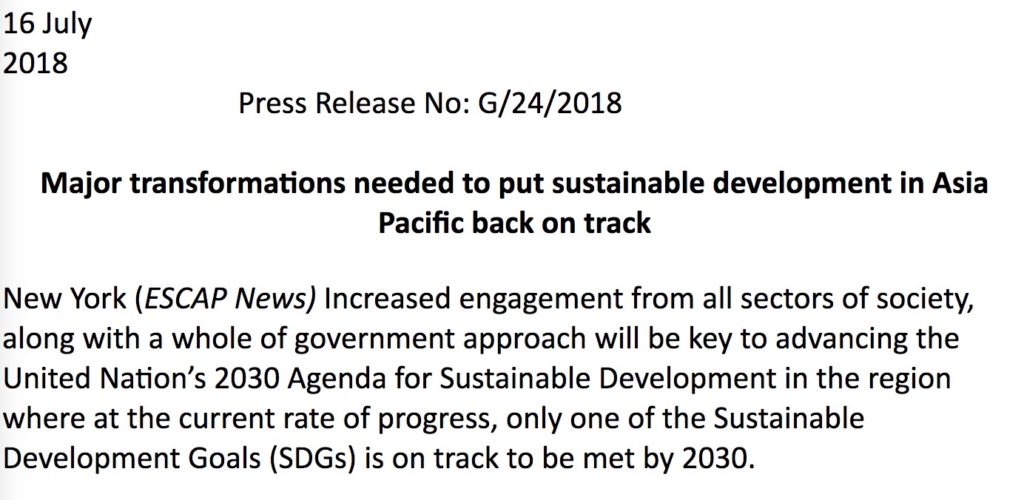
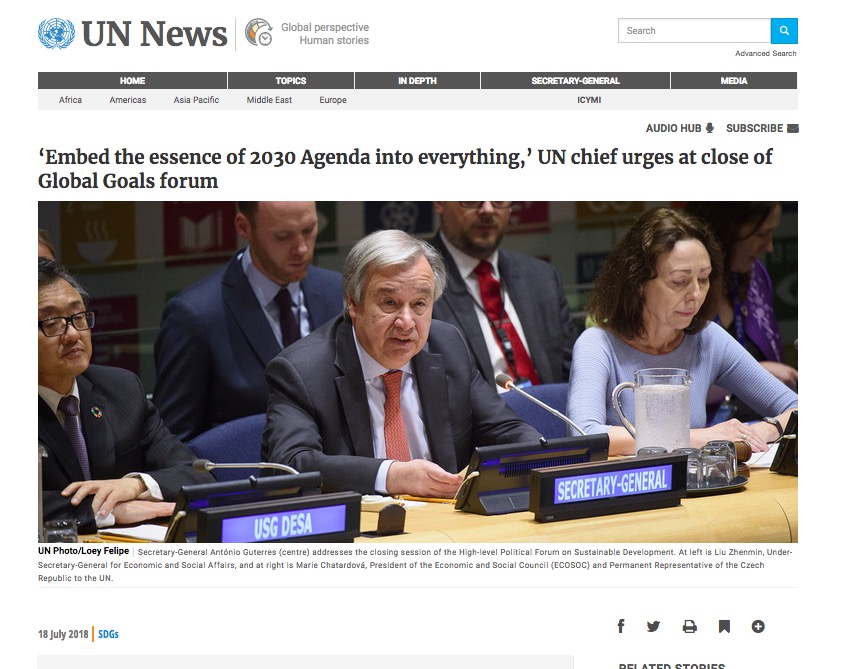
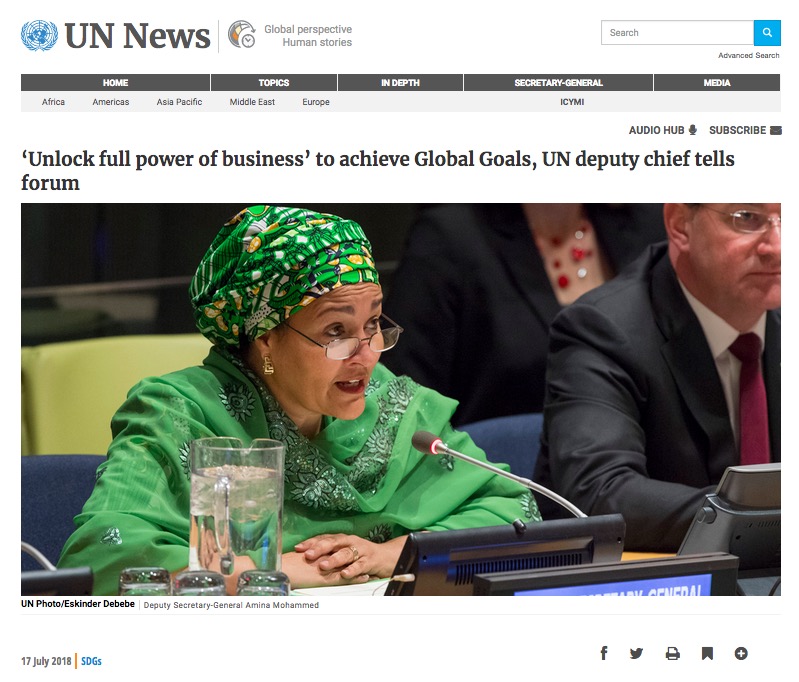
Indeed, the timeliness and forward-thinking relevance of the course were further enhanced by this UNWTO media release on July 23.
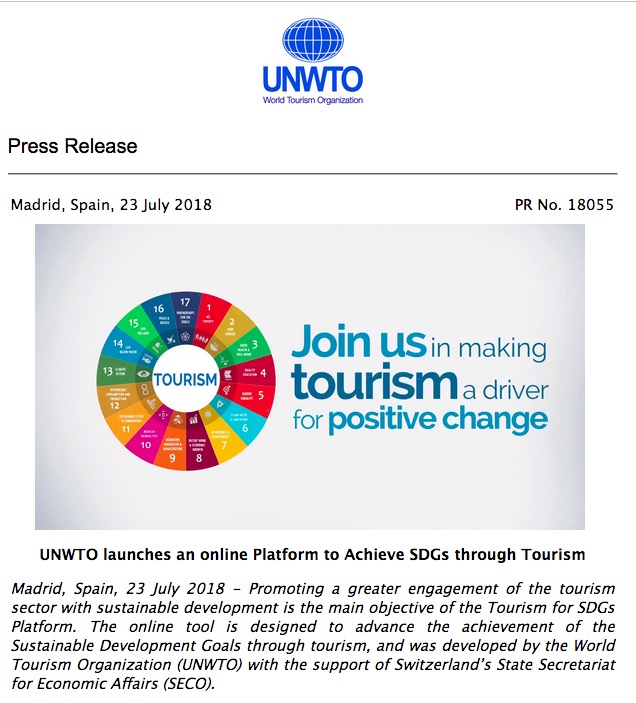
I will be giving the next course on Sept 10 for senior executives of Asian Overland Services and its subsidiary Frangipani Langkawi Resort, Malaysia, another great company that is well ahead of its time on environmental sustainability issues. Partnership talks are under way with a Bangkok-based PR consultancy to organise the course for other companies and stakeholders in Thailand and beyond.
The course will be compiled into a comprehensive training manual, another global first. It will bolster my long-standing body of work such as the landmark publication, The Olive Tree, in promoting the linkage between travel & tourism and the UN SDGs.
A Bird’s Eye View of Colombo’s “Golden Triangle of Peace”
By far the most important SDG for Sri Lanka is SDG 16 (Peace and Justice).
During the course, I showed the following slide of headlines in the global press about the threat of communal tensions resurfacing in Sri Lanka just a few years after the end of its devastating civil conflict.
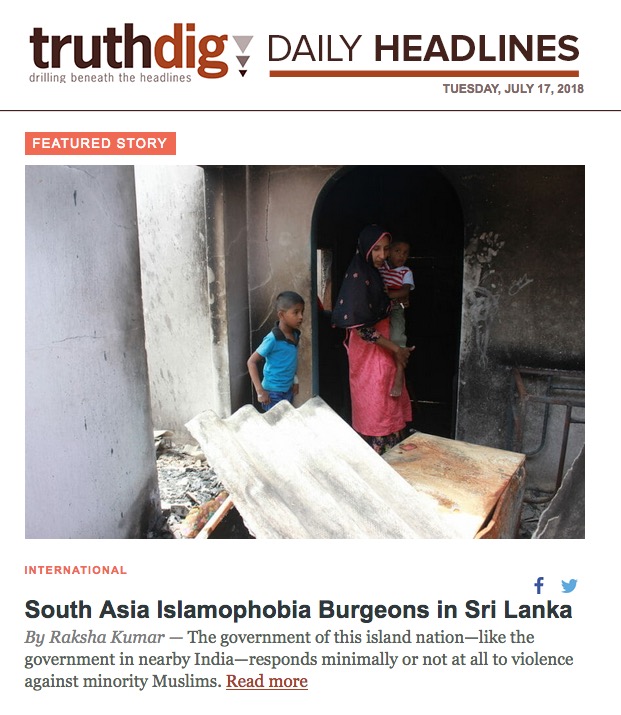
The conflict, which had its roots in socio-ethnic divisiveness made worse by political jingoism, decimated the Sri Lankan tourism industry for more than two decades. Now, with peace has come prosperity and the opportunities to learn from past mistakes in rebuilding the nation.
As Sri Lanka can ill-afford a repeat scenario, the “industry of peace” has to walk the talk of preserving the peace.
Just five minutes walk from the Jetwing group’s head office is a traffic intersection with a mosque, church and Buddhist temple within a stone’s throw of each other.
In view of our shared passion for religious harmony, Mr Hiran Cooray suggested I take a quick tour. He sent Ishanda Senevirathna to guide me.
Unable to get a proper picture of the three places of worship co-existing in absolute peace and harmony, I sought permission of the security officer of the 12-storey Commercial Bank building to take a bird’s eye photograph from the rooftop. Here is the result:
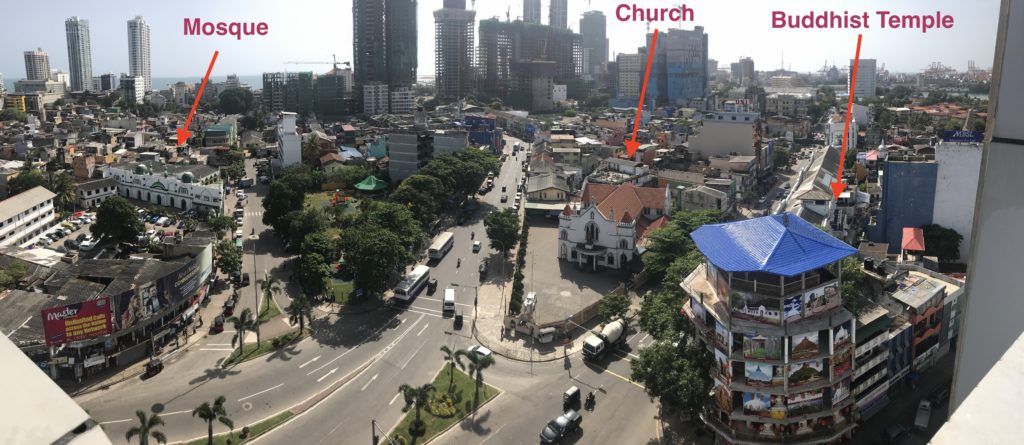
It is truly a Golden Triangle of Peace in the heart of Colombo, a city now experiencing a significant change in landscape and skyline, thanks entirely to the prevalence of peace.
Many other Asian cities have similar icons of peace, co-existing literally side by side for decades, undisturbed by fanatic, fundamentalist troublemakers of all ilks. The travel & tourism industry has a supreme interest in preserving this peace.
Achieving the Sustainable Development Goals will depend entirely on achieving SDG 16 first.



Liked this article? Share it!